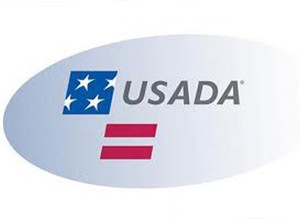USADA CEO hoping independent commission can determine truth despite limiting terms of reference
 Two months after the UCI announced that it wouldn’t fight USADA’s lifetime ban imposed on Lance Armstrong, the CEO of the American agency Travis Tygart has claimed that the governing body refused to hand over crucial documents relating to the case.
Two months after the UCI announced that it wouldn’t fight USADA’s lifetime ban imposed on Lance Armstrong, the CEO of the American agency Travis Tygart has claimed that the governing body refused to hand over crucial documents relating to the case.
The paperwork related to an alleged EPO positive during the 2001 Tour de Suisse. Several former US Postal Service riders testified that Armstrong told them he had failed a test, but that he would be able to use his connections with the UCI to avoid any punishment.
The UCI has conceded that his tests there and in the 2002 Critérium du Dauphiné were suspicious, but have insisted that the levels were not sufficient to open a disciplinary action against him.
According to Tygart, USADA’s efforts to investigate the US Postal Service riders’ claims in this area were made difficult by the UCI and the Swiss lab in question.
“We asked for the documents repeatedly and we were turned down, despite an agreement to obtain them, on numerous occasions,” he told the Guardian. “We’d still love to see the documents, to exonerate or otherwise.
“We were told they exist in summer 2010 and we’re still waiting for them. It has to be followed up and the commission that has been formed is going to follow up on that.”
Days after the UCI accepted the verdict against Armstrong, it announced that it was prepared to allow an independent commission to look into the claims made against the governing body.
The UCI appointed the Australian John Coates to draw up the commission members. He completed that task last month, with former Court of Appeal judge Sir Philip Otton named as acting as chair of the three-person group. The other two members of the commission are UK House of Lords Peer and Paralympic Champion Baroness Tanni Grey-Thompson, as well as the Australian lawyer Malcolm Holmes QC.
Tygart believes that the trio are qualified to carry out the investigation, but is not happy about the outline which has been drawn up.
“The people are esteemed and well respected. Where we have concerns are the terms of reference, that they are overly narrow and seem to handcuff and blindfold,” he said, echoing concerns expressed recently by WADA president John Fahey. “That’s an obvious concern. Even Interpol, with blinders on and handcuffs on and a straitjacket is not going to do anything.
“The people are great. There are the obvious questions of their independence and then you look at their narrow terms of reference and there are a lot of questions there that need to be answered.”
The commission has invited evidence from anyone who believes they have information which would be relevant. It is understood to have contacted several of those who gave evidence to USADA. The commission has set an initial deadline of December 31st for people to provide that information, saying that it wants to move swiftly with the enquiry.
Meanwhile Tygart says he still hopes that Armstrong will step forward and speak honestly about doping during his career. He believes it would help the sport to move forward, and would also be healing for the Texan.
“I just know the power of an athlete in that predicament. We had eleven athletes come forward and their stories are what has allowed this to happen and they’re very powerful,” he said.
“To be the one, with the reach and the appeal he has, could have taken it to a whole new level as far as the good that could come from it is concerned. It would be as big as we’ve ever seen in terms of promoting the integrity and the values of sport.”